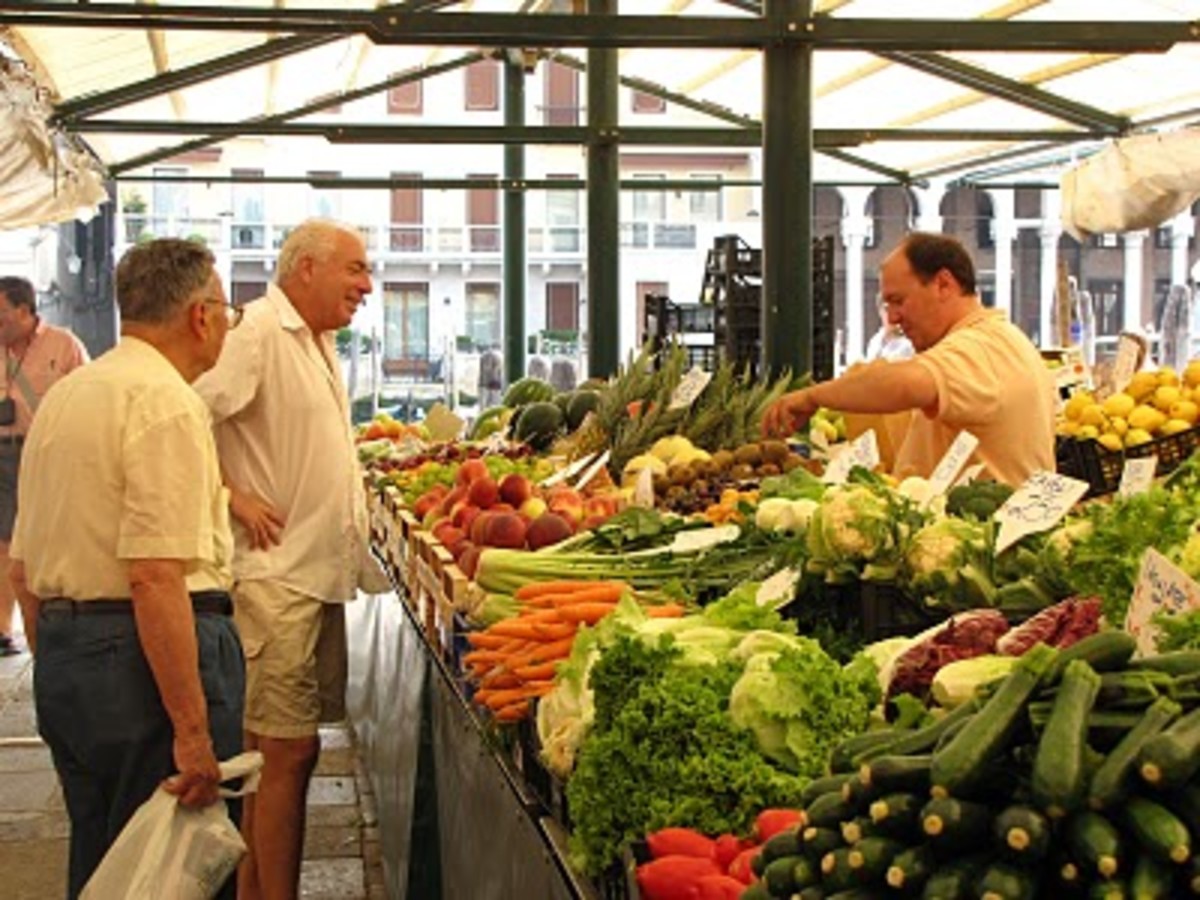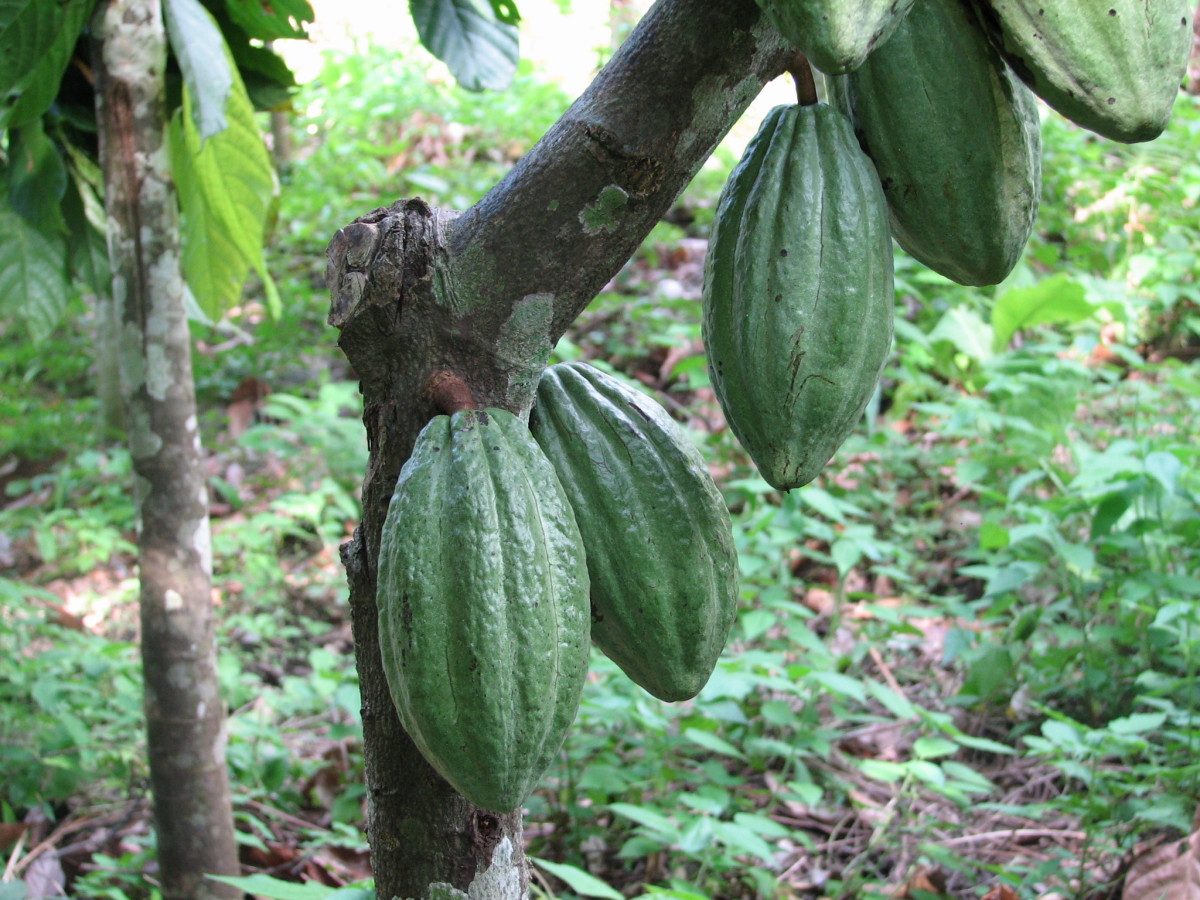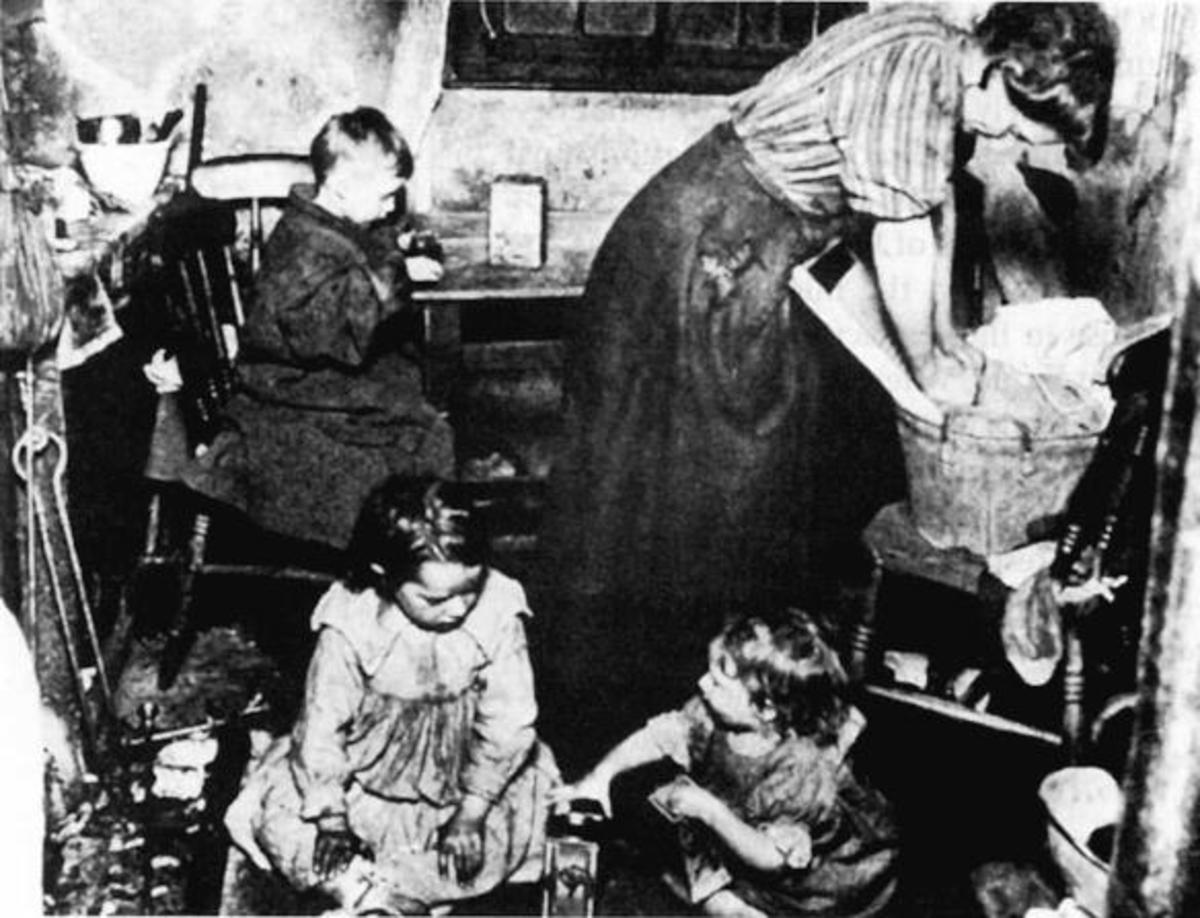How Your Coffee is Affecting the Globe
Fair Trade Coffee and It's Impact on the Globe
Coffee is one of the most popular commodities in industrialized countries around the world. Americans and Europeans in particular are infamous for ‘depending’ on coffee to get through their average work day. Starbucks’, Dunkin’ Donuts’, Costa Coffee, and countless other cafes line the streets of the biggest cities in the world and are present in the smallest and most isolated towns. With the countless gallons of coffee pouring in to our systems, it would make even a teetotaler twitch to learn where their favorite pick-me-up comes from.
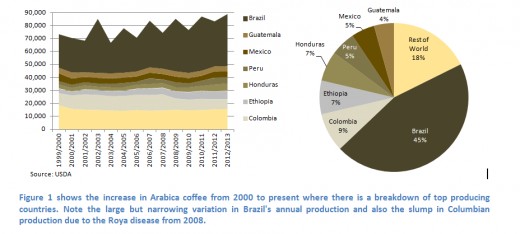
"Fair-Trade" is Not Always What It Seems
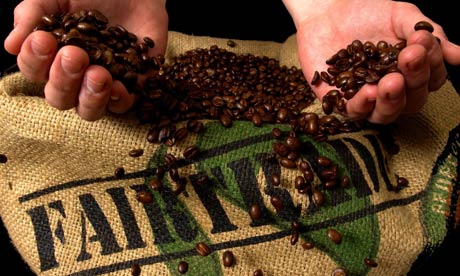
The Journey Coffee Takes Before It Reaches Your Cup.
Coffee is predominantly farmed and produced in impoverished South American regions, usually on large farms in very poor regions. Conditions on these plantations varies according to a number of reports, however, the general consensus is that these farms are usually not up to any international health and safety standards. Workers on these plantations usually make similar wages to sweat-shop workers, labor outside in extreme weather conditions, and are forced to work for long hours under these and other dangerous environments.
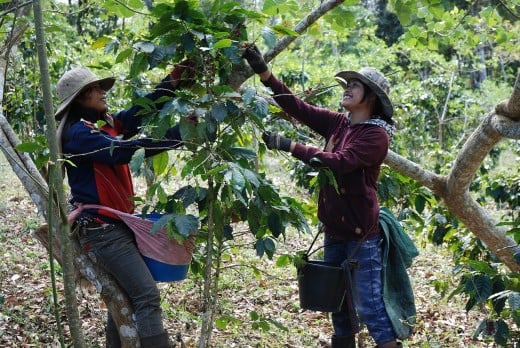
In Guatemala, a small Central American country which is the second-greatest producer of coffee in the world, working conditions are appalling. Coffee is the primary export of this impoverished region, and over half of its brown gold is exported to the US. In this mostly rural country, 65% of the farm-able land is held by 2% of landowners.
Over 27% of the indigenous population is left without land, and as agriculture is the major industry, many Guatemalans are forced to work on other people’s land for whatever wages the overlords are willing to pay.
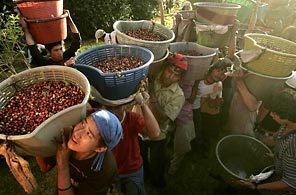
The International Coffee Crisis
On average, Guatemalan coffee farmers are told that they must meet the 100 pound quota in order to make $3 (US) a day. These workers operate as indentured servants, being forced to live on the land they farm, and usually are only allowed to shops at the plantation’s markets. Their living expenses are taken out of their very minimal pay. In some instances, the owners insist that the workers have cost the company more than they have made through work, and bring these workers and their families back year after year, sometimes at gunpoint, to pay off their ever-accruing debt – an impossible feat under this corrupt system.
According to globalexchange.org, children as young as 6 often work the fields on these plantations, and there are no safety precautions taken to protect the young workers. Like many of the adults, these children also accrue debt through food and shelter expenses. Only approximately 13% of Central American coffee workers have completed elementary education.
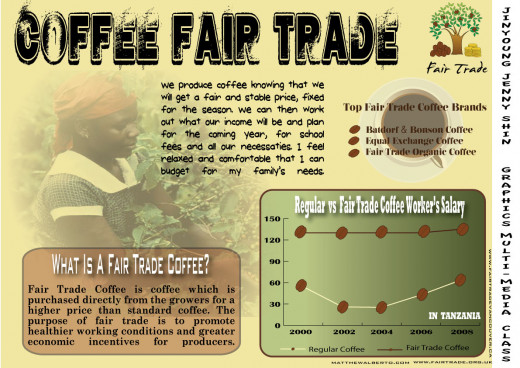
The international coffee trade has a terrible environmental impact as well. In the 1980’s, the US gave over $80 million to have Central and South American farmers switch to a form of farming called ‘sun cultivation.’ This method involved cutting down over 1 million hectares (3861 square miles) of rain forest land to allow more sunlight onto the fields, increasing the amount of crops yielded. Pesticides and chemicals were used liberally, and much of the land became unusable after a very short time, inciting prospective farmers to cut down more forests for farmland. Soil and water continue to be damaged by the run off of these toxins, and much of the lush natural landscape will be damaged for many decades to come.
Why Choose Fair Trade Coffee?
How Will You Help the Coffee Crisis?
What Steps Will You Take To Change the Impact Coffee Trade Has On the World?
The best solution to this coffee crisis has been the recent movement towards fair-trade products. Fair-trade farmers use methods like crop rotation, composting, and natural fertilizers in place of chemicals. Food is also cultivated along with the crops for profit, to ensure that the workers have amble enough to eat without forcing them to pay more than what they earn. Fair-trade programs are also responsible for complying with international health, safety, and labor laws, ensuring that workers are not taken advantage of, particularly in the poorer regions.
Currently, Starbucks uses 100% fair trade coffee, and Dunkin' Donuts as well as many other coffee distributors are switching as well. The more international coffee super-powers use fair trade coffee and other products, the injustices suffered by the workers and the damage done to the environment can be put to an end, permanently.

